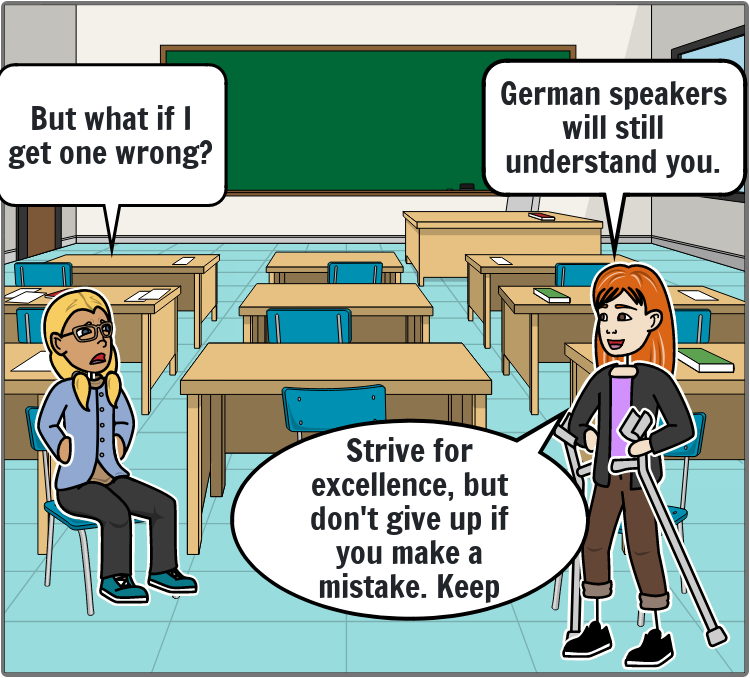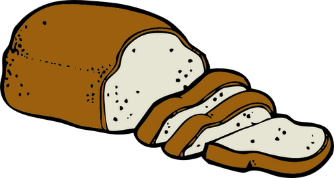7 Kapitel 12.2: Adjective Endings Without Definite or Indefinite Articles
12.2: Adjective Endings Without Definite or Indefinite Articles
Long ago and far away in GR 201, you learned adjective endings for definite and indefinite articles. Go here to review them:
https://una.pressbooks.pub/gr-201/chapter/kapitel-7-3-ein-word-adjective-endings/
There is one last set of adjective endings, but it doesn’t come up nearly as often as the ones for der-words and ein-words. We use these whenever there is NOT a der– or ein-word in front of the noun. They are often used with nouns that are collective, i.e. not countable.
- Good wine is hard to find.
- Would you rather have high quality or quantity?
- The farmer smelled fresh grass.
- We ate in a restaurant yesterday with old friends.
Notice that there is no “a” or “the” in front of the adjectives. Whenever this happens, we use a different set of adjective endings…BUT they have a pattern!

Frischer Käse ist lecker aber manchmal sehr teuer. Alter Käse stinkt. Man kann billigen Käse im Supermarkt kaufen. Man kann auch Fondue mit leckerem Käse probieren.
PATTERN: Take the ending of the definite article!
Beispiel: Good wine is hard to find.
- Find the definite article for “wine”→der Wein (nominative)
- Take the letters off the end of “der”→-er
- Put them on the adjective→guter Wein
- Guter Wein ist schwer zu finden.
Beispiel: Would you rather have high quality or quantity?
- Find the definite article for “quality” and “quantity”→die Qualität/die Quantität
- Take the letters off the end of “die”→ -e
- Put them on the adjective→ hohe Qualität/Quantität
- Hätten Sie lieber hohe Qualität oder Quantität?
Beispiel: The farmer smelled fresh grass.
- Find the definite article for “grass”→das Gras
- Take off the letter at the end of “das”→ -s
- Put it on the adjective→ frisches Gras.
- Der Bauer roch frisches Gras.
Beispiel: We ate in a restaurant yesterday with old friends.
- Find the definite article for “friends.” Watch out, it’s in the dative case this time! → mit den Freunden
- Take off the letters at the end of “den”→ –en
- Put it on the adjective→ mit alten Freunden
- Wir haben gestern mit alten Freunden in einem Restaurant gegessen.
The ONLY one that doesn’t follow this pattern is masculine/neuter genitive. For some strange reason, its ending is –en instead of taking the letter at the end of the definite article.




Watch Lingoni German’s video to see this being retaught.
Ex. A: Alter Wein. Was möchten Sie heute essen? Unten sind einige Vorschläge.
EXTRA PRACTICE: (Courtesy of Claudia Kost and Crystal Sawatzky, University of Alberta). Beware! ALL types of adjective endings are included.
Ex. C: Nicos Weg. Episode 69: Einfach super! Gucken Sie die Episode und machen Sie die Online-übungen.
https://learngerman.dw.com/en/einfach-super/l-38232130
Ex. D: Nicos Weg. Episode 70: Das regt mich auf! Gucken Sie die Episode und machen Sie die Online-übungen.
https://learngerman.dw.com/en/das-regt-mich-auf/l-38263737




